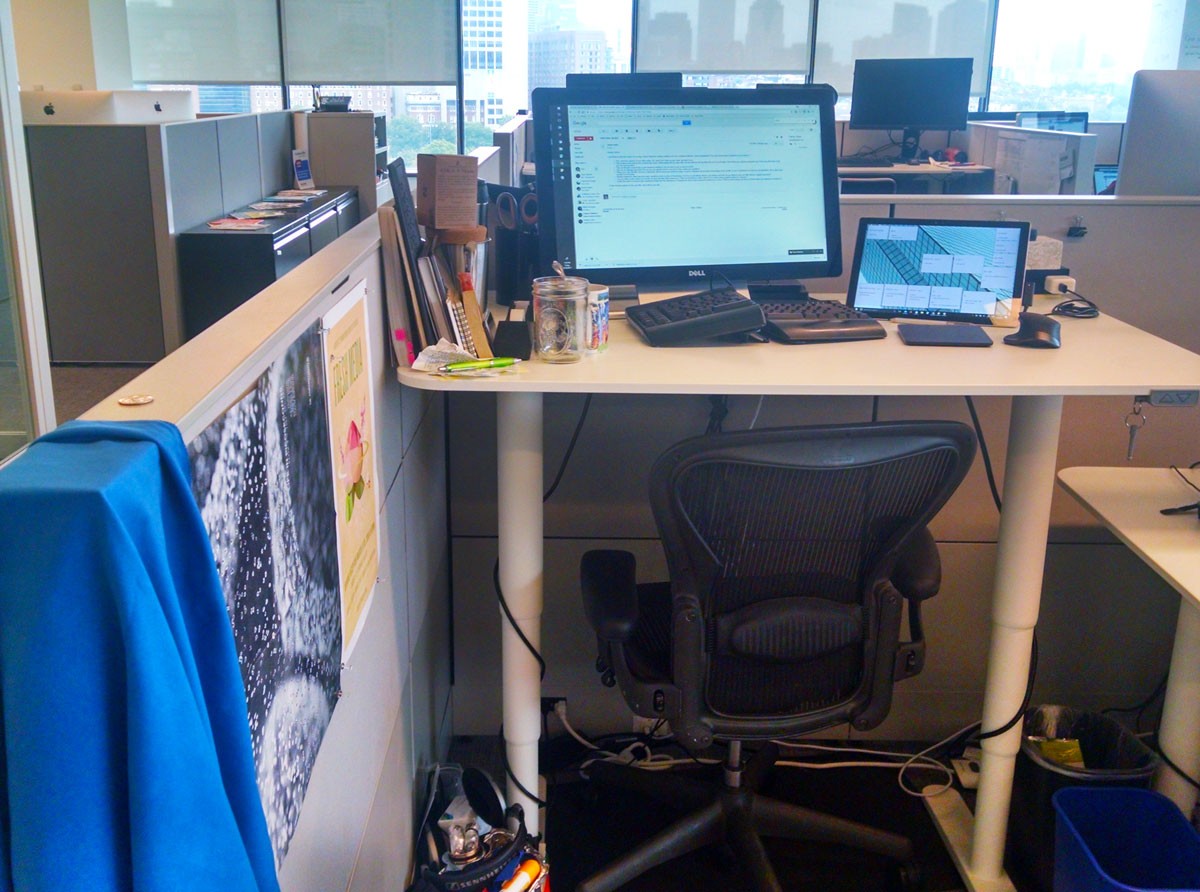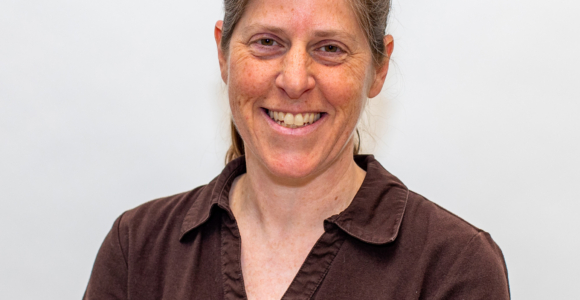Web Design at Work
Freelancing can be a solitary enterprise, even for creatives who work in shared spaces. The strategies we use to survive, however, are common. In this series Web Design at Work, I interview my colleagues in marketing and advertising to learn how they live, work, and thrive in this constantly changing field.

Today we talk to Yurij Lojko, Creative Developer and Owner of Lojko & Co, based out of Medford, MA. Yurij studied Magazine Journalism at Boston University. He’s an avid bicyclist and the host of Riding the Norse Horse at WMBR when he’s not writing code.
Tell me about your journey into a freelancing career. What training did you start with, and how did you end up doing the work you do today? Were there any surprises along the way? How long did it take to get your first paying client?
I started freelancing way before leaving my first full-time job. It was tough back then because I’d work at work then I’d go home and work some more. Not to mention my first real client paid me in hamburgers and burritos—but it was worth it. Word of mouth recommendations ever since meant I’ve never had to hunt for projects. These days they kind of just fall in my lap. I didn’t even have my own website or business card until a few weeks ago.
I have a full-time job at a genomics company called WuXi NextCODE, but I have a special arrangement—I have to be in the office 40 hours a week, but they only expect me to put in 20 hours per week towards their projects. This way they have access to a highly experienced web developer and I get full benefits! We came to this arrangement back when they were still a full startup and couldn’t pay me a true, full-time salary. They thought correctly that I’d make up the difference with freelance projects. Here I am three years later with my own LLC on the side and a never-ending list of projects to work on. Even though NextCODE is no longer a startup, they still honor our original, forward-thinking relationship.
Send me a picture of your office setup. No—stop! Don’t clean up your desk, just take it as is.

Do you have to put on pants to work?
Comfort in work apparel is a necessity for me. If I wasn’t allowed to wear a T-shirt and jeans or shorts to work every day, I don’t think my relationship with NextCODE would have ever worked out.
How do you manage your time? Do you use any specific tools or services to help control your workflow?
I use several tools to organize and manage my projects, as well as working with other teams. A few I absolutely love using are: Asana, Trello, Basecamp, Slack, Microsoft Sticky Notes, Google Docs, Google Calendar, Gmail, Zoom Meeting, and Google Chat.
What’s your “rig” look like? If you’re a developer, tell me about your technical setup. If you’re a designer, tell me about what design tools you like. If you’re a barbarian and just use spreadsheets, tell me about your favorite Excel formula.
I use a Kinesis Freestyle split keyboard, a Dell Touchscreen Monitor, a MX Master Mouse, and a Logitech Touch Pad Mouse with a Surface Pro 4. The touchpad allows me to avoid super repetitious movement, which has led to pain for me.
Newbie freelancers often have two major questions when it comes to freelancing: How do you get attract clients to get started, and How do you afford to pay your bills without a regular paycheck?
I don’t recommend starting to freelance without first establishing a relationship with at least one decent client. Like I said before, gradually easing into it could be a painful 1 to 2 years but once you get the ball rolling, you’ll be all set.
Can you share a story about your favorite (or least favorite) client experience? What can freelancers and/or clients do to make working together better for everyone?
One client couldn’t believe how much better the experience was working with me than with her previous developers. She rants and raves about it pretty much in every email she writes to me. All I do is explain to her the options, give my recommendations, and do the work on time. I guess she used to have low expectations… but man, it makes me feel good to know my opinion and work is appreciated!
Lastly, this series is meant to give neophytes insight into the experiences of freelancers who’ve been around the block once or twice. What are three things you wish you knew when you started as a freelancer?
- Being my own boss is not necessarily as fulfilling as I always wished it would be, but it’s still awesome.
- It’s important to get someone to help you with your taxes as soon as you start making consistent $ or else you’ll be paying more taxes than you’d expect.
- Working with no-budget startups is a massive pain—make sure you really love what they’re doing. Otherwise… it’s. not. worth it.




Comments on Web Design at Work: Interview with Creative Developer Yurij Lojko
Tiago Lavis-Fernandes
I’m sorry but I didn’t understand how the split keyboard can help. Is it more comfortable? It looks like a pain to write e-mails on it. I would love if you could answer this, as I’ve been trying to improve the way I work and maybe a keyboard like that is what I need. Thanks for the great content, I love your blog!
Daniel Quinn
I wish I knew the answer to that. Yurij sure did love that keyboard. I believe it’s technically more ergonomic for the keyboard to be split in half, as our hands naturally sit side-by-side.
Tiago Lavis-Fernandes
Thank you for your swift response Daniel, this certainly left me so tempted to try! I’ll order one from Amazon soon. I can’t believe I’ve never seen them before. Thanks again, you’ve got an amazing blog here and I’ll certainly keep an eye on your great content news <3